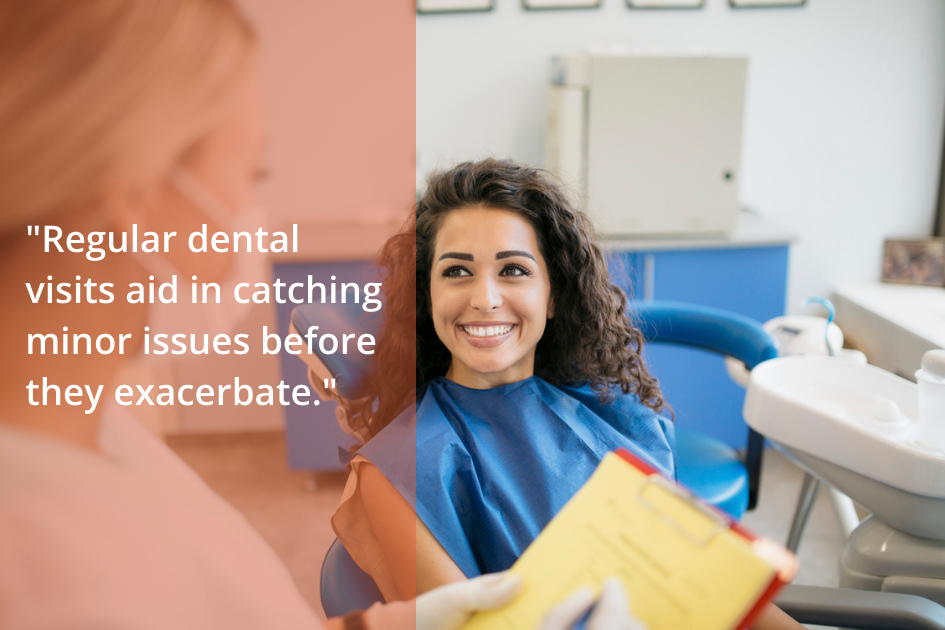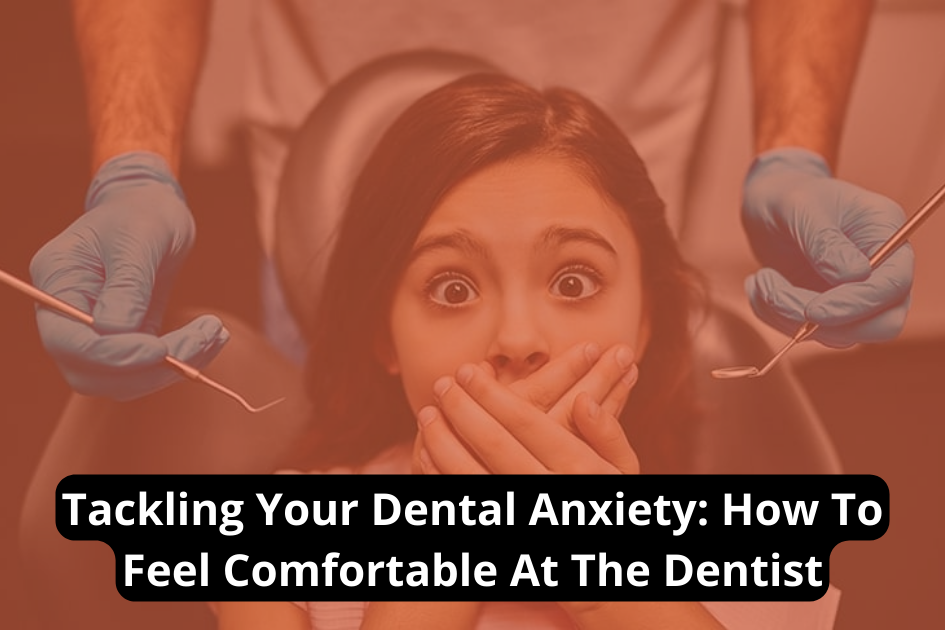Visualize a scenario where every visit to the dentist feels akin to being a trapped deer in the headlights. You are part of a sizable group, as dental anxiety is a prevalent problem.
This guide is designed to enable you to overcome such fear, promising a less stressful dental experience. It will highlight the vital role of communication with your dentist, present effective calming methods, and discuss alternatives such as sedation for more comprehensive procedures.
Ultimately, your comfort is of utmost importance, and managing your anxiety is a significant part of achieving that. Let’s embark on this journey to making your dental visits less intimidating.
Understanding Dental Anxiety
Feeling apprehensive about your upcoming dental visit? You’re not alone. Understanding dental anxiety is a step toward handling it effectively. Anxiety may be triggered by various elements such as the dental chair, drill, or simply the anticipation of pain. This fear could originate from past traumatic experiences, fear of needles, or a perceived loss of control. These anxieties often lead to skipping regular check-ups and cleanings, turning minor oral health issues into complex and costly treatments.
It’s vital to understand that this anxiety can be measured objectively, using indicators such as blood pressure, pulse rate, and others to categorize individuals into mild, moderate, or high anxiety levels. This assessment is pivotal for determining the appropriate intervention, whether it be psychotherapeutic or pharmacological.
Managing dental anxiety is achievable. Techniques such as behavior modification therapies, cognitive strategies, and even sedation can make your dental visit less intimidating. A supportive dental environment and motivation for future visits can significantly reduce fear and anxiety. You don’t have to let dental anxiety rule your oral health. Understanding is a step towards conquering.
Communication is Key
It’s crucial to understand that your dentist is a collaborator in guaranteeing a comfortable dental experience. Hesitation should never hinder you from expressing your fears or concerns. They exist to assist you, and transparent communication can drastically reduce any anxiety you may experience.
Opening Up to Your Dentist
Please don’t hold back when it comes to sharing your fears and concerns with your dentist. Such candid communication serves a pivotal role in tailoring a personalized strategy to mitigate your dental anxiety.
Transparency about your worries allows your dentist to comprehend your mental health better, thus making it possible for them to modify their approach and offer the assistance you require. It’s worth noting that their job is to provide help, not to cast judgment.
An honest conversation about your apprehension could result in comprehensive explanations of procedures, dispelling any doubts and significantly lessening your anxiety. Trust forms the cornerstone of this relationship and is fostered through open and truthful communication.
The Role of the Dental Team
What is the significance of a dental team in the context of open communication and management of anxiety?
They hold a crucial role. Their presence extends beyond merely conducting procedures; they’re there to listen, empathize, and provide support. Discussing your apprehensions with them can help ease anxiety, and provide them with the opportunity to tailor your treatment plan.
They possess methods such as relaxation strategies and sedation dentistry to guarantee your comfort. It’s vital to question their methods of handling dental anxiety, which can profoundly influence your experience.
Don’t forget, they’re your partners on this path. Through clear communication, they can navigate you through the process, ensuring your dental visit is more than just tolerable, but indeed comfortable.
Relaxation Techniques
Let’s proceed with relaxation techniques. Employing these strategies can notably alleviate your dental anxiety, both before and during your appointment.
We’ll examine a range of methods, from deep breathing to guided imagery, crafted to manifest a more pleasant dental experience.
Before the Appointment
Prior to your dental appointment, embracing relaxation techniques to alleviate anxiety is vital. Techniques such as deep breathing and meditation can greatly decrease stress levels and instill a sense of tranquility.
Considering sedation options with your dentist could also be beneficial. Sedation may offer an additional comfort layer, particularly if your anxiety is intense or if you’re receiving comprehensive treatments.
The effectiveness of distraction should also not be ignored. Some dental clinics propose virtual reality experiences during procedures. Carrying headphones for listening to music or an audiobook might be supportive.
Above all, maintain open communication with your dentist regarding your anxiety. They can adapt their methods to ensure your experience remains as comfortable as possible.
During the Appointment
During your scheduled time, adopting relaxation methods becomes crucial to handle your nervousness effectively. Realize that your dentist’s role is to assist, hence, expressing any apprehensions or worries shouldn’t hold you back. This candidness can result in a more relaxed experience.
Contemplate employing these measures to alleviate your apprehension:
Always recall that these techniques act as aids. Utilize them to reclaim control and alter your dental visit experience.
Distraction Methods
Various distraction methods are available to alleviate your dental anxiety and make your experience more pleasant. Music, with its profound impact, can transport your mind to a serene environment. Therefore, it might be worthwhile to bring along some soothing music or an absorbing audiobook to your dental appointment. Visual aids can also be quite effective. Certain dental practices provide virtual reality experiences to distract you from the procedure.
Controlled breathing exercises serve as another superb distraction technique. These methods can engage your mind and physically soothe your body. With your dentist’s approval, you might attempt a few controlled, deep breaths during your visit.
Communication with your dentist concerning your anxiety is critical. Many are inclined to make adjustments to ensure your comfort. Whether it’s music, visual distractions, or controlled breathing, your dentist can assist in identifying the most suitable distraction method for you.
Regardless of the method you select, the objective is to divert your attention from the procedure and cultivate a more relaxed, less anxiety-inducing dental experience. These techniques equip you well for managing your dental anxiety.
Technology and Sedation Options
During your visit to the dentist, be aware that there are advanced technological and sedation options to help ease your anxiety. Dental offices now have modern distractions such as virtual reality headsets to help manage your apprehension.
Let’s get further into what you might find:
Sedation Options:
A pill will induce a deep relaxation state while keeping you awake and responsive.
If undergoing extensive treatments, you’ll be put into a deep sleep for the duration of your procedure.
Technology:
Immersion in a peaceful virtual environment serves as a distraction during the procedure.
This assists in evaluating your anxiety level and customizing the approach to suit your needs.
Remember that all these options aim at ensuring your comfort and safety. Communicating openly with your dentist will help to determine the best strategy for you. You aren’t alone on this journey, and your fears are acknowledged. Making you comfortable is the priority, with several measures implemented to ensure a positive dental experience.
Preparing for Your Visit
Arrangements for your dental visit can significantly diminish your anxiety.
The evening prior and the day you have your appointment represent vital periods where you can establish a less tense atmosphere.
Let’s outline some measures you can employ during these periods to make your visit more agreeable.
The Night Before
Your preparation the night prior to a dental appointment can play an essential role in managing dental anxiety. It isn’t solely about the physical aspects; it also involves calming your mind. Here are some suggestions that could assist:
This permits them to modify their strategy to ensure a more relaxed experience for you.
Items such as packing headphones to enjoy music or an audiobook during your appointment could be on this list.
Transparent communication is crucial. Share your worries and apprehensions with your dentist. They’re present to aid you. The more they comprehend, the more effective their assistance can be.
Implementing these measures means you’re paving the way for a visit with less stress.
The Day Of
After having taken measures to alleviate your anxiety the previous night, focus on what can be done on the day of your dental visit for an even more comfortable experience. Begin by sharing your fears with your dentist; they can adapt their method to suit you better.
Contemplate bringing headphones to lose yourself in music or an audiobook, creating a calming diversion. Go through your checklist of actions; being prepared can help reduce anxiety significantly.
An open dialogue is vital; discussing your worries with your dentist can offer vital support. Remember, your dentist aims to provide you with maximum comfort.
With these strategies, you’re preparing yourself for more than just a visit, you’re gearing up for a positive dental experience.
Regular Dental Visits: A Preventive Approach
Despite any apprehensions, regular dental visits serve as a preventive strategy against escalating minor oral health issues into significant problems. By circumventing these check-ups, simple issues such as cavities could evolve into intricate and expensive procedures such as root canals or extractions. It’s understandable that dental anxiety can be a formidable barrier, causing treatment delays. Regrettably, this results in increased pain, discomfort, and elevated treatment costs.
Let’s simplify what happens during regular visits:
- Early Detection: Routine check-ups aid in catching minor issues before they exacerbate.
- Example: A tiny cavity can be spotted and managed before it turns into a toothache.
- Preemptive Care: Consistent visits enable your dentist to administer preventive treatments.
- Example: Your dentist can apply sealants to shield your teeth from decay.
It’s crucial to remember that your dentist is there to assist you. They comprehend your apprehensions and are prepared with tactics to ensure your experience is comfortable. So, exhale, set up that appointment, and adopt the preventive methodology for your oral health.
Conclusion
Fear not the dentist! An empathetic approach, transparent dialogue, and soothing methods can help you overcome your dental anxiety.
Explore distraction techniques, embrace the marvels of modern technology, and investigate options for sedation.
Getting ready beforehand and maintaining regular appointments are crucial to avoid complications.
Rest assured, you’re not on this path alone. Dental professionals in Sandy are committed to providing a relaxed, less intimidating experience. Dental anxiety need not determine your dental wellbeing.

















